| Content | NAD Electronics T 778 Reference 9.2 Channel A/V Receiver
NAD s reference Audio Video Receiver (AVR) is a cutting-edge powerhouse for state of the art music and home theater. Well known for our high value/ high performance reputation in the AVR category, the brand s reference model builds on that legacy with an expansion of unwavering philosophy of real-world performance, simplicity of operation, and future upgradeability.
Introducing the T 778 A/V Surround Amplifier
BluOS Enabled 4K Ultra HD Receiver with Immersive Sound
NAD s reference Audio Video Receiver (AVR) is a cutting-edge powerhouse for state of the art music and home theater. Well known for our high value/ high performance reputation in the AVR category, the brand s reference model builds on that legacy with an expansion of unwavering philosophy of real-world performance, simplicity of operation, and future upgradeability.
Efficient Distortion-free Amplification
The T 778 features the latest developments in NAD s Hybrid Digital technology to create 9 high current/high power channels of amplification with improved efficiency. Designed with NAD s full disclosure approach to power ratings, the NAD AVR conservatively delivers 85W FDP and 9 x 140W FTC, all channels driven at rated distortion. For flexibility, the amp channels are configurable to be used for surround or second zone audio. The silent black background and explosive dynamics afforded by this amplifier technology adds lifelike realism, drama and excitement to all your music and movies.
Fully Featured Surround
The T 778 is second-to-none in terms of flexibility and up-to-the-minute digital technology. Only NAD offers Modular Design Construction (MDC), the company s proven method for preventing premature obsolescence. 7.1.4 Dolby Atmos , DTS Master Audio combine with Dirac Live room correction to deliver hyper-realism that captures every dimension of a performance. Add bit-perfect 4K UHD video pass-through and the T 778 delivers the most accurate sound and image experience you ve ever had. Musical performance is outstanding with High Res Multi-room streaming via BluOS.
Complete and Compact
As with all NAD components, the company s latest offering continues their simple is better design philosophy. This sensible approach contributes to ease of use and maximizes performance where it counts. A perfect example is the striking new touch screen and ergonomic refinements that simplify operation and ease of access. The T 778 features NAD s legendary sound quality along with complete compatibility with all the latest features and formats to ensure lifelike music and movie enjoyment.
Key Features of the NAD T 778:
- 9 channels of NAD s latest Hybrid Digital Amplifier Technology
- New touch screen and improved ergonomics for user-friendly operation
- 4K UHD video pass-through
- HDMI CEC/eARC
- High-Res BluOS enabled Network Streaming
- Dirac Live Room Correction
- Full decoding of MQA content via BluOS.
- Apple AirPlay 2
- MDC (Modular Design Construction) offers ability to upgrade to future digital formats as they become available. Two MDC slots provided.
- CI friendly- RS232 Serial Control Port. Trigger In/Out.
- IR In with learning function
| Rupert Neve Designs RNHP is a state-of-the-art headphone amplifier. Now when Mr. Neve turns his attention to anything, you know it's going to be good. And spectacularly so. What the RNHP delivers is reliable, reference-grade amplification for any pair of headphones. Based on the headphone amp in the RND 5060 Centerpiece, the dedicated 24-volt design is spec'd with calibrated +4dBu Line, RCA, and 1/8" stereo inputs. Everything's housed in a road-tough, VESA-mountable steel chassis. The unit's effortless sonic performance and the ability to drive virtually any 'phones without compromise let you perform, mix, and savor your music with stunning clarity.
Rupert Neve Designs RNHP at a Glance:
- Unerring accuracy for better performances
- The benefits of near-zero-ohm output impedance
Unerring accuracy for better performances
You know you perform your best when your cans sound great - and that's where the RNHP can make a huge difference. Many integrated headphone amps are plagued with a non-linear frequency response, as well as noise, distortion, and skimpy headroom. To some, these units' lackluster sonic performance may seem "close enough for rock 'n' roll," however at Sweetwater, we believe there is the performer's subconscious response to consider. After all, if you're not inspired by what you're hearing, your performance will suffer.
The benefits of near-zero-ohm output impedance
Rupert Neve Designs spec'd the RNHP with near-zero-ohm output impedance to minimize frequency-based reactive-load impedance shifts - a problem unique to headphone monitoring. This ensures accurate sound reproduction, which is obviously important if you need to trust the decisions you make with headphones. You'll find the RNHP's unerring accuracy beneficial when you're using just one set of cans, and also when you're comparing a mix on multiple pairs of headphones.
Rupert Neve Designs RNHP Features:
- Reliable, reference-grade amplification for any pair of headphones
- Based on the headphone amp in the RND 5060 Centerpiece
- Effortless sonic performance
- The ability to drive virtually any headphones
- Dedicated 24-volt design
- Calibrated +4dBu Line, RCA, and 1/8" stereo inputs
- Near-zero-ohm output impedance minimizes frequency-based reactive-load impedance shifts
- Road-tough, VESA-mountable steel chassis
| The Rupert Neve Designs Portico II Master Bus Processor lets you enhance, reshape, and polish your sound to perfection. Whether you want to add finishing touches to your master bus, level out a stereo group, or add new life to mono sound sources, the Portico II Master Bus Processor gives you the compression, limiting, and stereo field manipulation you need. Featuring custom input and output transformers designed by Rupert Neve, the Portico II Master Bus Processor implements the same ultra-smooth Class A signal processing made famous by the 5088 console and the Portico II Channel, as well as 72V topology, which gives it enormous headroom while allowing it to integrate seamlessly with virtually any system. If you’re serious about your sound, then it’s time to ask your Sales Engineer about the Rupert Neve Designs Portico II Master Bus Processor!
Powerful and flexible compression
Both channels of the Portico II Master Bus Processor feature one of Rupert Neve Designs’ most versatile compressors to date. Whether you want to add punch to your mix or smooth out your vocal subgroup, the Portico II Master Bus Processor has the compression you need. Controls for ratio, threshold, attack, release, blend, sidechain highpass filter, limiting, and makeup gain let you dial in the perfect dynamics quickly and easily. Use the two compressors independently, or instantly link them with the push of a button. Variable Silk Red/Blue Texture controls let you add classic Neve harmonic warmth; while a blend control lets you dial in the dry signal for instant parallel processing, so you can get all of the compression you want without losing transients. In addition, the Portico II Master Bus Processor gives you a choice of either vintage-flavored feed-back or modern-sounding feed-forward compression modes.
Transparent, musical limiter that’s effortless to use
Often overlooked at first glance, the Portico II Master Bus Processor’s 1-knob limiter is a powerful, flexible, and remarkably easy-to-use tool that lets you get the most out of the Portico II Master Bus Processor’s compression section. Rupert Neve Designs’ Adaptive Release Technology gives this limiter its unique ability to grab onto fast transients, without smothering the rest of the signal. Plus, you have the option to blend compressed and dry signals together for parallel processing that maintains natural-sounding dynamics without clipping. This gracious behavior means you can set it and forget it, with the added security of knowing your masters will be free from clipping and broadcast-ready.
Sidechain inserts for creative ducking
Every dynamics processor has a sidechain circuit that examines the signal and determines how much the VCA will reduce gain — but not every unit provides access to its sidechain. In compressors without a separate sidechain input, your main input signal is, essentially, compressing itself. With compressors like the one in the RND Portico II Master Bus Processor, you can insert external processing on the sidechain — or introduce a different signal that determines the compression action on the main signal. It’s an incredibly useful feature that lets you, for instance, automatically duck a track to make space for another (very popular for that EDM mix pumping effect). Combined with the sidechain HP filter, it gives you an impressive amount of tonal versatility.
Amazing Stereo Field Editor
Although the Rupert Neve Designs Portico II Master Bus Processor functions wonderfully as a dual-mono processor, it really shines in stereo mode. That’s thanks to its unique Stereo Field Editor. The Stereo Field Editor uses advanced Mid/Side stereo manipulation techniques, allowing you to adjust your stereo bus’s width, depth, and ambience. Beyond widening your stereo image, the Portico II Master Bus Processor can actually bring center-panned instruments out in your mix. That makes the Portico II Master Bus Processor an invaluable tool for mastering, as well as defining the spread of your subgroups during mixdown.
The legend continues
Rupert Neve’s 80 Series consoles had a huge, punchy, and authoritative sound that defined the sound of ’70s rock. From London to New York to Los Angeles and beyond, top studios were installing Neve boards as fast as they could. By 1977, with the introduction of the NECAM automation system, 80 Series boards were the main component of the success formula for any recording studio with world-class aspirations. Mr. Neve’s current company, Rupert Neve Designs, continues to advance the state of the art with cutting-edge products that sound incredible and intelligently address the challenges of the digital age. With your Rupert Neve Designs Portico II Master Bus Processor from Sweetwater, the legend continues.
Rupert Neve Designs Portico II Master Bus Processor Features:
- Powerful 2-channel compressor/limiter/stereo field manipulator
- Custom input and output transformers designed by Rupert Neve
- Full compression sections for both channels, including attack, release, ratio, and threshold controls
- Sidechain inserts and highpass filters for both compressors
- Feed-back/Feed-forward switch lets you select between vintage-style and modern compression modes
- Silk Texture control with Red/Blue modes for classic Neve harmonic warmth
- Blend controls allow you to mix dry signal back into your compression, preserving transients while adding punch
- Simple and highly musical 1-knob limiter with Adaptive Release Technology allows for brickwall limiting that doesn’t distort or affect signal under the threshold
- Stereo Field Editor section includes independent level and EQ for width and depth, allowing you to dial in the perfect stereo field
| With a fully discrete current feedback design, the PM8006 integrated amplifier is perfect for audiophiles who require both excellent music quality and flexible operation. The PM8006 offers a powerful 2x 70 W into 8 ohm build, while the symmetrical circuits provide optimal imaging. To ensure the most immersive musical experience, the amplifier uses new Marantz-designed electric volume control and Marantz Musical Phono EQ preamp stage, created to obtain the purest signal from beloved vinyl by minimizing noise levels. To further remove interference, new isolating feet are used to support the amplifier, combining high density and a damping fiber.
The PM8006 also includes preamp outputs along with a power amp direct input, allowing you to use the unit as a standalone power amplifier for integration into a multi-channel home theater system. For precise sound tailoring, our triple tone control system provides separate controls for the bass, midrange and treble. The elegant remote control features an ergonomic layout for easy operation, and can control accompanying source players.
Features
- Integrated Current Feedback Amplifier with 2x 70W / 8 ohm rms
- Newly designed electric volume circuit
- Exceptional Marantz Musical Phono EQ stage
- Marantz proprietary HDAM-SA3 circuits
- Triple layer bottom plate
- Gold Plated Inputs/Outputs incl. Phono (MM) input
- Double shielded Toroidal Transformer and high quality customized components
- High quality, original Marantz SPKT-1+ Speaker Terminals (A / B switchable)
Specifications
Inputs: RCA line x 5, RCA MM phono x 1, HT bypass
Phono input sensitivity: 2 mV @ 47 kOhm
Phono SNR: 87 dB
Outputs: Tape out, pre out, headphone out, speaker A and B
Power output (8 ohm / 4 ohm): 70 W / 100 W
Dimensions: 17.3" x 14.9" x 5"
Weight: 26.45 lb
| The M3si integrated amplifier produces high quality sound, has an extensive range of useful inputs and offers high reliability, compact size and a fair price. With its strong 85 watts per channel, the M3si will drive a huge variety of appropriate loudspeakers. It has inputs for phono (MM), 4 line inputs and USB ‘B’ up to 24bit 96 kHz.
The M3si’s sound is effortless, clear and sweet. It projects wide and deep images and has plenty of power to deliver excellent dynamic range.
The M3si is unconditionally stable and will drive any appropriate loudspeaker with ease.
Although it is Musical Fidelity’s lowest price amplifier, it embodies our hallmark values of uncoloured, stress-free sound, outstanding technical performance and great value for money.
M3si In Brief
- 85WPC
- Excellent technical performance
- Preamp output
- Unconditional stability, will drive any loudspeaker
- Wide range of useful inputs
- including asynchronous USB and MM phono
- Excellent build quality and convenient size
Specifications
Power output: 85 W per channel into 8 ohm
THD(+ noise): <0.014 % typical, 20 Hz to 20 kHz
Signal to Noise Ratio: >98 dB ‘A’-weighted
Frequency Response: +0, –0.1 dB, 10 Hz to 20 kHz
Inputs: 4x Line Level RCA / Phono, 1x USB type ‘B’ connector - Asynchronous data stream at up to 24-bit/96kHz, 1x MM Phono input
Phono
Sensitivity (nominal): 3 mV (suitable for cartridges giving 1.5mV or more including high output MC types)
Signal / noise ratio: >70 dB ‘A’-weighted
Input impedance: 50 k ohm
Frequency response: RIAA/IEC ±1 dB, 20 Hz to 20 kHz
Dimensions - WxHxD (mm): 440 x 100 x 400
Weight (unpacked / packed): 9.2 kg/ 13 kg | Features
- Dual mono construction
- High-end ESS Sabre ESS9038 dual DAC
- Proprietary clock circuity design
- Organic polymer capacitors and thin film miniMELF resistors
- MQA hardware decoding
- DSD64, DSD128, DSD256 & DSD512 (DoP, DSD512 native)
- Up to 24bit/192kHz for optical & coax inputs
- 8 selectable digital filter characteristics
- 1 proprietary optimum transient digital filter
- Headphone output on the front (6.3mm)
- Synchronization of all internal oscillators
- Jitter as low as 100 Femtoseconds!
- Gold plated four-layer PCB
- Full alu/metal sandwich casing in silver or black
Technical
| Digital inputs |
1x USB (B), 1x Co-axial (RCA), 1x Optical (TOSLink) |
| D/A-converter |
2x ESS9038Q2M 32-bit |
| USB |
up to DSD512 (DSD1024), PCM up to 32b/768kHz |
| Optical |
PCM up to 24b/192kHz |
| Coaxial |
PCM up to 24b/192kHz |
| Filter settings |
7 different selectable on front |
| Frequency response |
20 Hz - 20 kHz |
| Analogue outputs |
6.3mm Headphone (front), 1x Variable Out (RCA |
| Output voltage |
2.05 Veff |
| Minimal recommended headphone impedance |
8 Ohm |
| Headphone output power |
6.6 mW / 600 Ohm; 68 mW / 32 Ohm |
| THD |
0.0003% @ 0 dB, 2V RMS, 1 kHz |
| Dynamic range |
124 dBA |
| Outboard Power supply |
5V/1A DC (included) |
| Dimensions W x H x D |
103 x 37 x 122 mm (including knob and connectors) |
| Weight |
366 g (without power supply) |
|






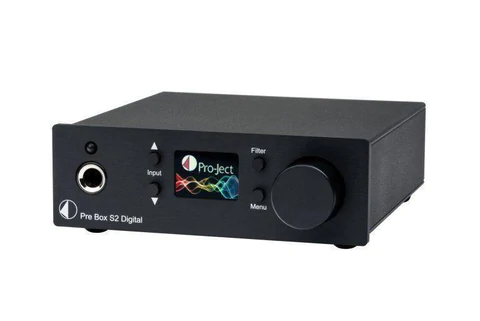



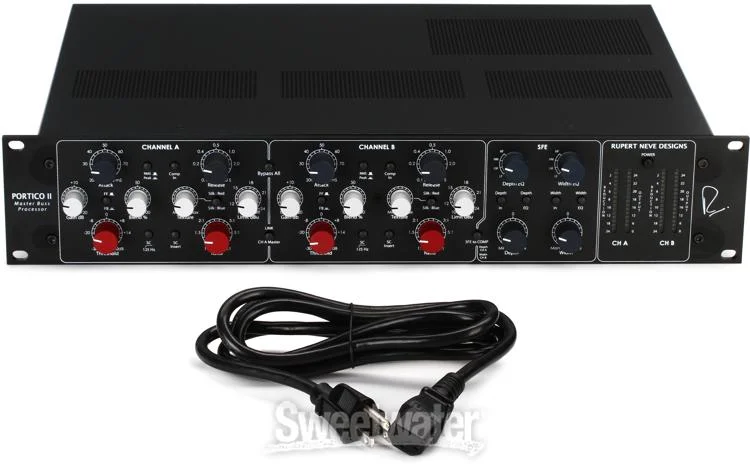



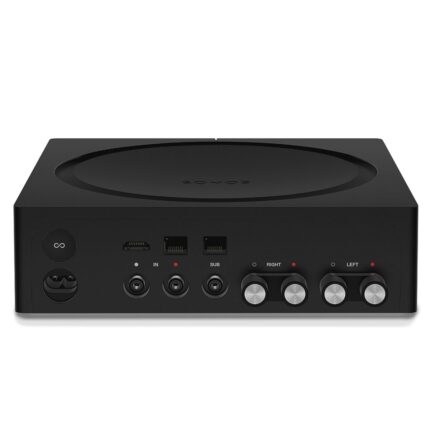
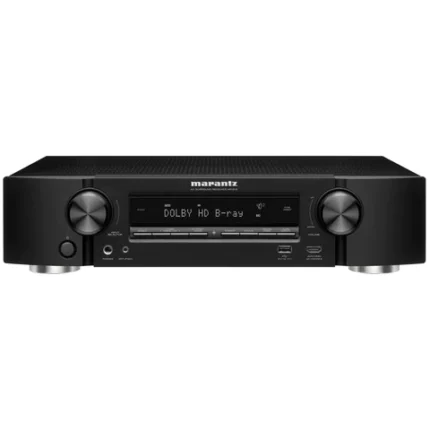
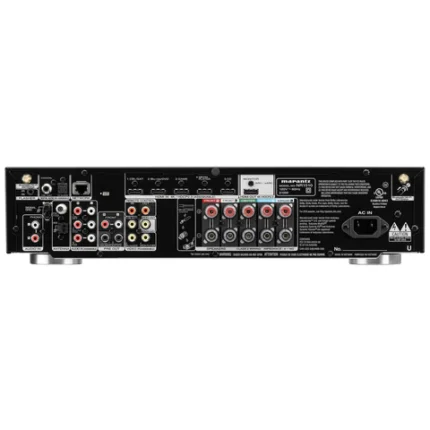




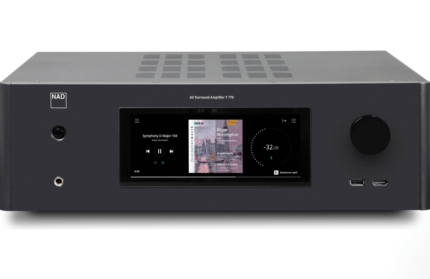
Reviews
There are no reviews yet.